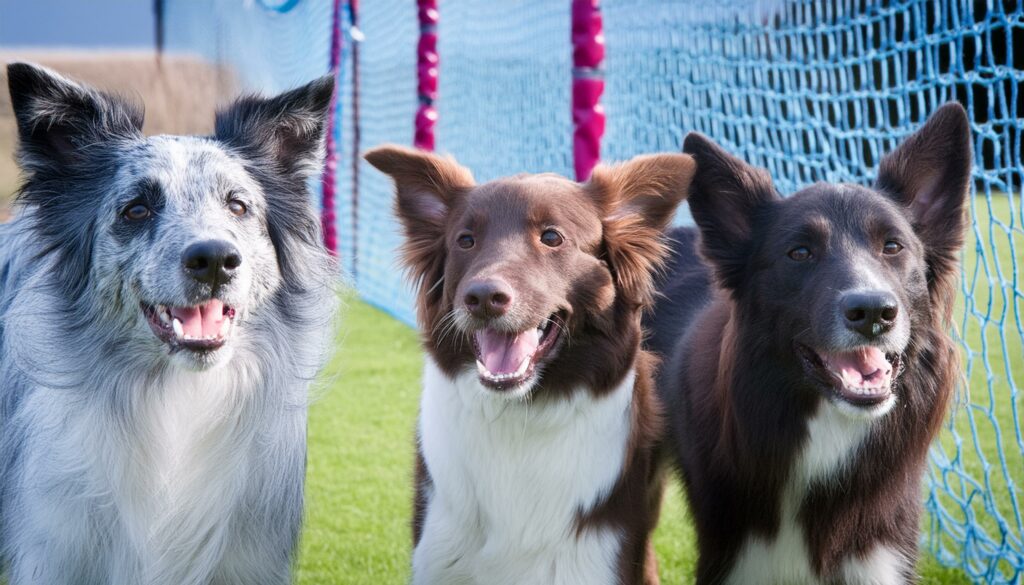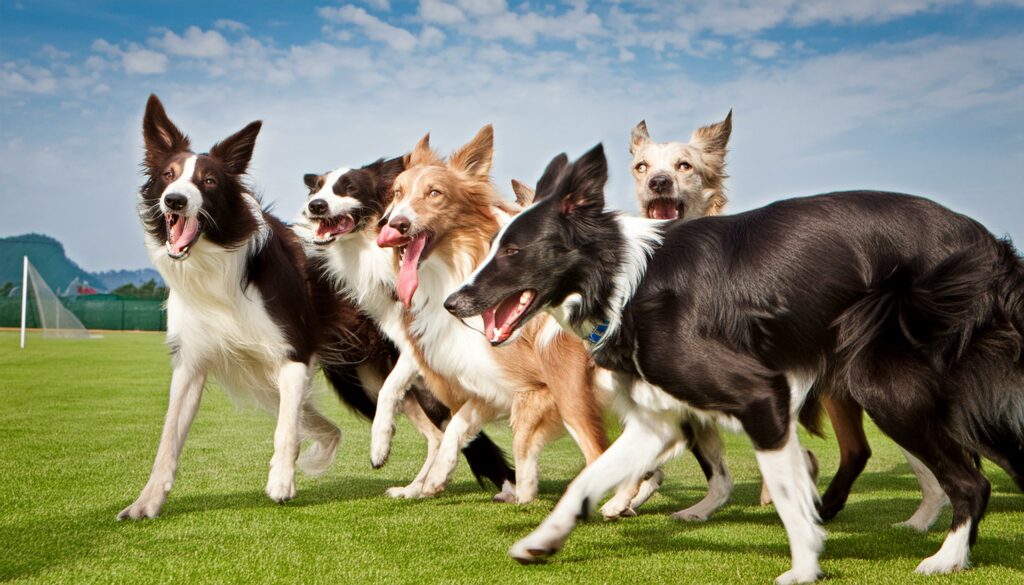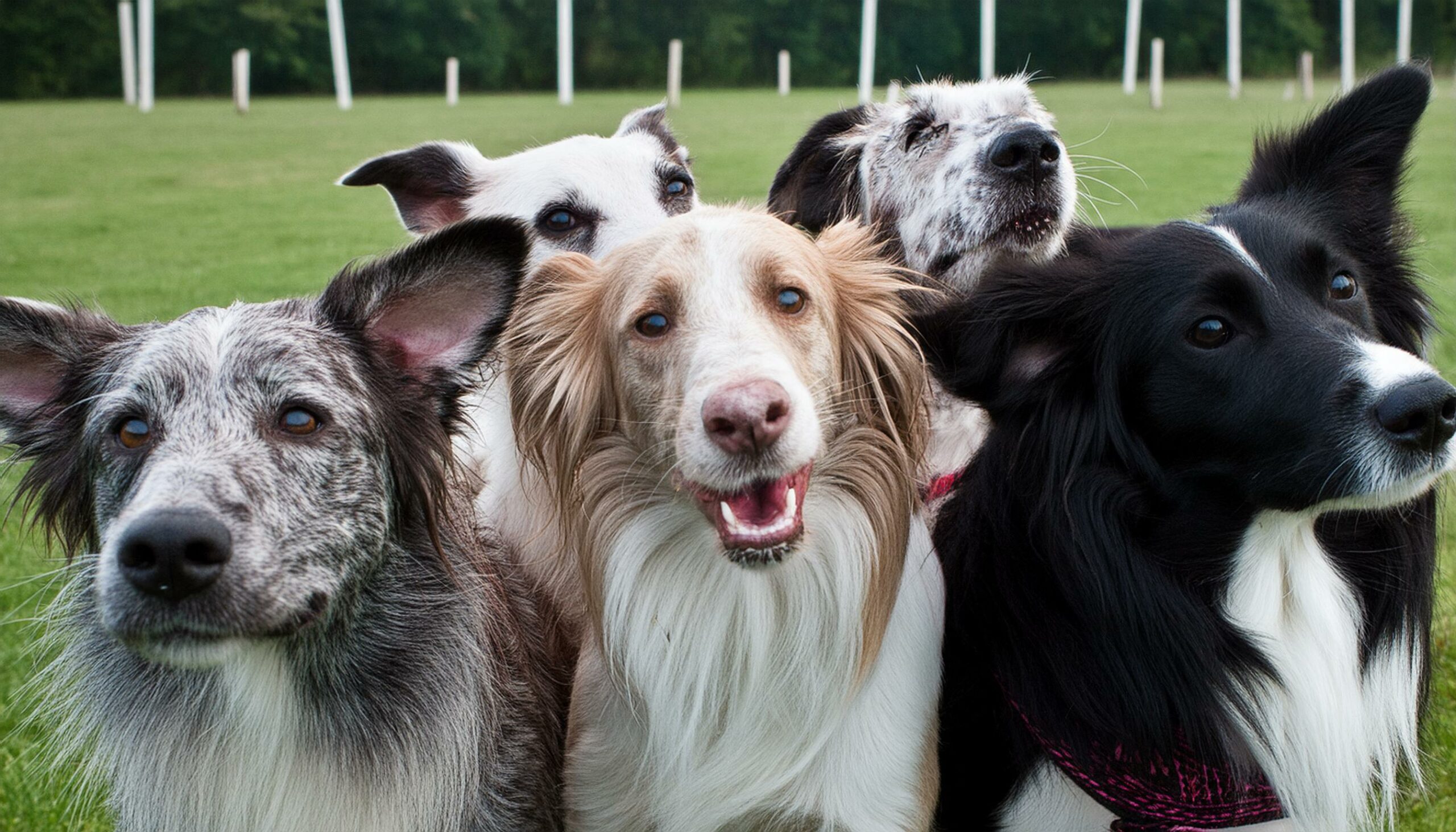Border Collies are often hailed as one of the most intelligent and energetic dog breeds. Originating from the border regions of Scotland and England, these remarkable canines were originally bred for herding livestock. Today, they are cherished as loyal companions, agility champions, and hardworking service dogs. However, despite their impressive abilities and endearing traits, Border Collies are not immune to problem behaviors that can challenge even the most experienced dog owners.
Understanding Problem Behaviors
Defining Problem Behaviors
Problem behaviors in Border Collies encompass a wide range of actions and habits that disrupt harmony in the household or hinder the well-being of the dog. These behaviors can vary in severity, from minor nuisances to serious issues that require professional intervention. Common problem behaviors include excessive barking, destructive chewing, digging, jumping, herding behavior directed at humans or other pets, separation anxiety, and aggression towards people or animals.
Common Problem Behaviors in Border Collies
Border Collies are known for their intense drive and boundless energy, which, if not properly directed, can manifest as problem behaviors. Their herding instinct, a trait deeply ingrained in their genetic makeup, may lead to behaviors such as nipping at heels, circling, or attempting to herd children, other pets, or even objects. Additionally, their high intelligence and sensitivity make them prone to boredom and frustration if not provided with adequate mental and physical stimulation.
Causes of Problem Behaviors
Lack of Proper Training and Socialization
One of the primary reasons for problem behaviors in Border Collies is a lack of proper training and socialization during puppyhood. These dogs are highly intelligent and eager to please, but without consistent guidance and positive reinforcement, they may develop undesirable habits or become overly reactive to certain stimuli. Early socialization, which involves exposing puppies to various people, animals, environments, and experiences, is crucial for shaping their behavior and temperament.
Genetic Predispositions
Certain problem behaviors in Border Collies may have genetic roots, particularly those related to their herding instinct. Dogs bred from working lines, where emphasis is placed on herding ability rather than temperament, may exhibit stronger herding instincts that, if not properly channeled, can lead to problem behaviors. While genetics play a role, proper training and management can help mitigate these behaviors and channel their instincts in a positive direction.
Environmental Factors
Environmental factors also play a significant role in the development of problem behaviors in Border Collies. These dogs thrive on mental and physical stimulation, and insufficient exercise or environmental enrichment can lead to boredom and behavioral issues. Additionally, stressful or traumatic experiences, such as changes in routine, loud noises, or being left alone for long periods, can trigger anxiety or fear-based behaviors.
Identifying Problem Behaviors

Signs and Symptoms to Watch For
It’s essential for Border Collie owners to be vigilant for signs of problem behaviors in their dogs. These may include excessive vocalization, such as barking or whining, destructive behaviors like chewing furniture or digging up the yard, hyperactivity or restlessness, fearfulness or aggression towards people or other animals, and compulsive behaviors like tail chasing or shadow stalking. Recognizing these signs early allows for timely intervention and management.
Addressing Problem Behaviors
Positive Reinforcement Training
Positive reinforcement training methods are highly effective in addressing problem behaviors in Border Collies. These methods focus on rewarding desired behaviors with treats, praise, or other rewards, while ignoring or redirecting unwanted behaviors. By consistently reinforcing positive behaviors and providing clear cues and expectations, owners can effectively modify their dog’s behavior without resorting to punishment or coercion.
Consistency and Patience
Consistency is key when addressing problem behaviors in Border Collies. Establishing clear rules and boundaries and enforcing them consistently helps prevent confusion and reinforces positive behaviors. Patience is also essential, as behavior modification takes time and effort. By remaining patient and persistent, owners can gradually shape their dog’s behavior and build a strong bond based on trust and mutual respect.
Seeking Professional Help
In cases of severe or persistent problem behaviors, seeking the assistance of a professional dog trainer or behaviorist is recommended. These experts can assess the underlying causes of the behavior and develop a customized training plan to address the issue effectively. They may also provide guidance on management strategies and offer support and encouragement to owners throughout the training process.
Preventing Problem Behaviors

Early Socialization and Training
Preventing problem behaviors in Border Collies begins with early socialization and training. Exposing puppies to a wide range of people, animals, environments, and experiences from a young age helps them develop confidence, resilience, and good manners. Positive interactions and experiences during this critical period lay the foundation for a well-adjusted and well-behaved adult dog.
Regular Exercise and Mental Stimulation
Border Collies have high energy levels and require plenty of physical exercise and mental stimulation to stay happy and healthy. Daily walks, runs, or play sessions help burn off excess energy and prevent boredom-related behaviors. Additionally, engaging in activities such as obedience training, agility, flyball, or interactive puzzle toys provides mental enrichment and helps satisfy their innate need to work and problem-solve.
Creating a Safe and Stimulating Environment
Creating a safe and stimulating environment is essential for preventing problem behaviors in Border Collies. Providing plenty of toys, chew items, and interactive games keeps them mentally and physically engaged and prevents boredom or frustration. Additionally, ensuring they have a comfortable and secure space to rest and relax helps reduce stress and anxiety, promoting overall well-being.
Conclusion
Understanding and addressing problem behaviors in Border Collies requires patience, consistency, and a proactive approach to training and management. By identifying the underlying causes, implementing appropriate training methods, and providing a stimulating environment, owners can help their Border Collies become well-behaved companions and cherished members of the family.
FAQs
How do I stop my Border Collie from excessive barking?
Excessive barking in Border Collies can be addressed through training techniques that redirect their focus and reward quiet behavior. Consistency and positive reinforcement are key.
What should I do if my Border Collie displays aggressive behavior?
Aggressive behavior in Border Collies should be addressed with caution and professional guidance. Consult a qualified behaviorist to assess the underlying cause and develop a behavior modification plan.
Is it normal for Border Collies to exhibit herding behavior towards children or other pets?
While herding behavior is a natural instinct in Border Collies, it should be redirected away from children or other pets through training and socialization. Supervision and management are important to prevent accidents.
Can problem behaviors in Border Collies be prevented?
Many problem behaviors in Border Collies can be prevented through early socialization, proper training, regular exercise, and providing a stimulating environment. Consistency and positive reinforcement are key components of prevention.
When should I seek professional help for my Border Collie’s problem behaviors?
If your Border Collie’s problem behaviors are severe, persistent, or impacting their quality of life, it’s advisable to seek the assistance of a professional dog trainer or behaviorist. They can provide expert guidance and support to address the issue effectively.
